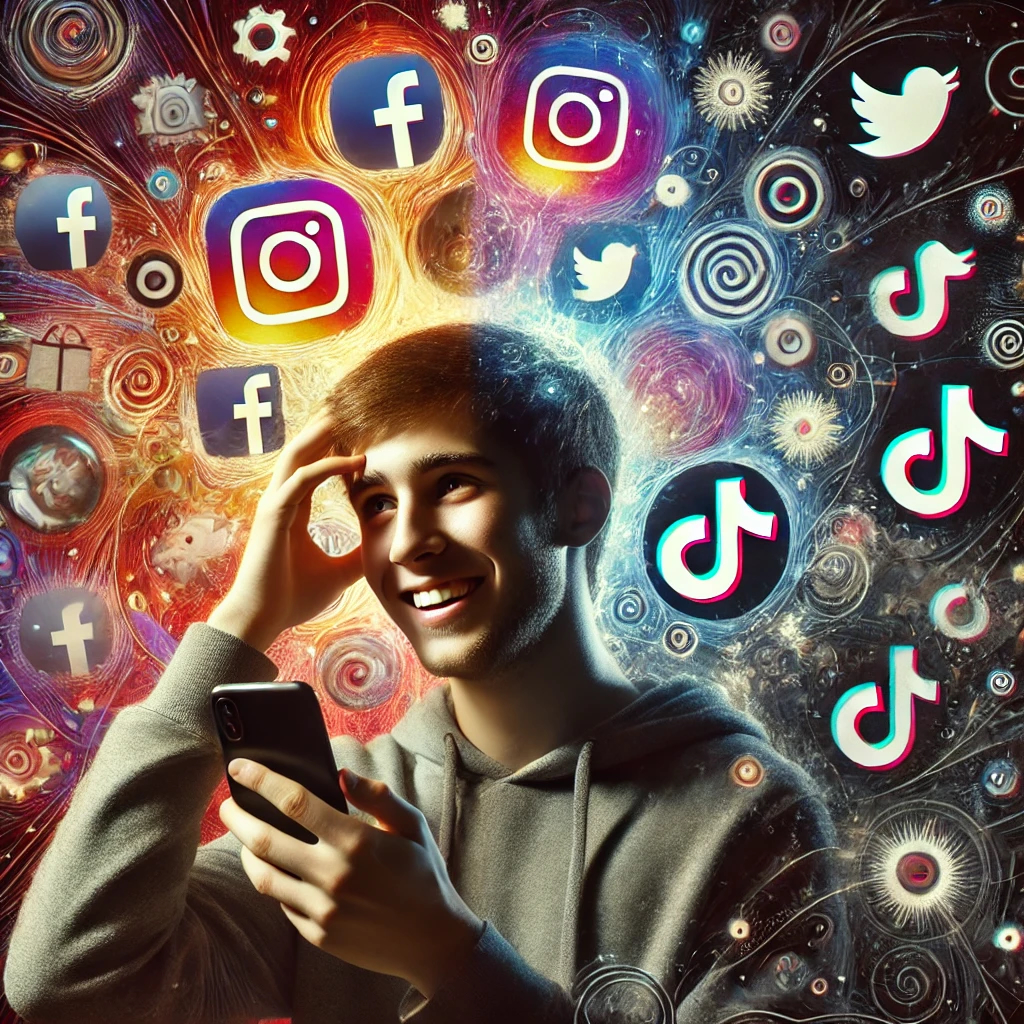As social media continues to shape how we connect, communicate, and engage with the world, its impact on mental health has become one of the most pressing issues in psychology today. While platforms such as Instagram, Facebook, and TikTok offer unprecedented access to global networks and information, they also raise serious concerns regarding their effects on psychological well-being.
The Rise of Social Media Use
In recent years, the rise in social media usage has been exponential. For many individuals, especially adolescents and young adults, social platforms serve as the primary space for social interaction. This shift from in-person to virtual interactions has fundamentally altered how we develop relationships, present our identities, and perceive our self-worth.
However, this digital dependency has sparked growing concerns within the psychological community, particularly around issues of self-esteem, body image, anxiety, and depression.
Psychological Effects: A Double-Edged Sword
Research indicates that while social media can foster a sense of community and provide valuable support networks, it can also trigger harmful psychological effects. One of the most well-documented issues is the link between social media use and increased levels of anxiety, depression, and feelings of loneliness.
1. Social Comparison and Self-Esteem
One of the central concerns is the tendency for users to engage in social comparison—constantly evaluating themselves against the curated, often unrealistic images and achievements of others. This can lead to lower self-esteem and body dissatisfaction, especially among younger users who are more susceptible to external validation.
2. Fear of Missing Out (FOMO)
Another psychological phenomenon amplified by social media is FOMO (Fear of Missing Out), which can lead to feelings of inadequacy and anxiety. Constant exposure to others’ highlight reels—vacations, social gatherings, professional successes—can evoke a sense of exclusion and heightened anxiety about one’s own life experiences.
3. Addiction and Dopamine Reward Systems
Psychologists have also identified addiction to social media as a growing concern. The platforms are designed to trigger the brain’s reward systems, leading to compulsive checking, likes, and scrolling that can interfere with daily life and disrupt attention and productivity. This has been linked to the brain’s dopamine release cycle, akin to other forms of behavioral addiction.
4. Cyberbullying and Online Harassment
Cyberbullying is a significant issue, with long-lasting impacts on victims, such as increased rates of depression, anxiety, and even suicidal ideation. The anonymity and ease of access offered by digital platforms can intensify these harmful behaviors, leaving individuals vulnerable to psychological trauma.
Moving Forward: Strategies for Healthy Use
As social media becomes more embedded in our daily lives, it is critical to develop strategies for healthy use. Psychologists recommend several approaches:
- Digital Detoxes: Taking breaks from social media can help reduce its negative impacts, allowing individuals to reset their emotional and cognitive balance.
- Mindful Engagement: Being aware of the time spent online and curating content that promotes positivity and education can improve one’s experience.
- Promoting Awareness: Educating younger users on the potential psychological effects of social media and fostering emotional resilience can mitigate harmful impacts.
Conclusion
The relationship between social media and mental health is complex. While it offers avenues for connection and support, it also presents significant risks to psychological well-being. As the field of psychology continues to explore this critical issue, understanding and mitigating the negative effects of social media will be paramount in promoting healthier digital environments and improving mental health outcomes.
References:
- Keles, B., McCrae, N., & Grealish, A. (2020). Social media use and young people’s mental health: A review.Psychiatria Danubina, 32(2), 273-284.
- Huang, C. (2020). Time spent on social network sites and psychological well-being: A meta-analysis.Cyberpsychology, Behavior, and Social Networking, 20(6), 346-354.
- Twenge, J. M., & Campbell, W. K. (2018). Associations between screen time and lower psychological well-being among children and adolescents: Evidence from a population-based study. Preventive Medicine Reports, 12, 271-283.
Prepared by:
- Dr. Dilarom Demiralay
- Dr. Baris Demiralay
- Dr. Lana Kelly
- Dr. Richard Bert


Leave a Reply